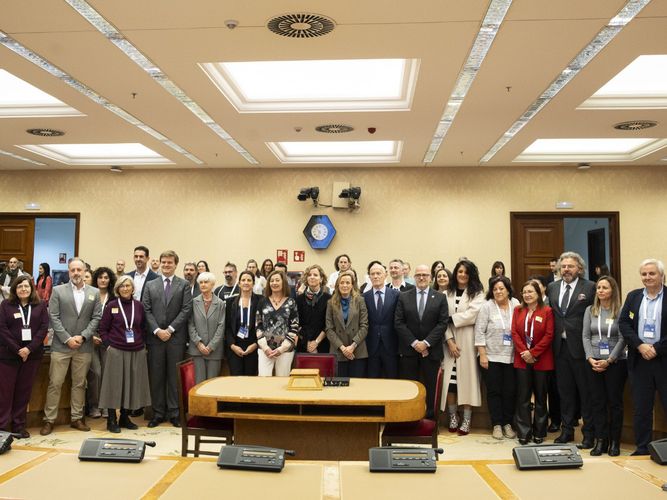The Science and Technology Office of the Spanish Congress of Deputies publishes Report C - Sustainable Coastal Zone Management, with participation from SOCIB

The Science and Technology Office of the Spanish Congress of Deputies (Office C) has published four new reports in 2024, offering scientific and technical insights on key topics relevant to members of Parliament. Among these, the report titled “Sustainable Coastal Zone Management” includes valuable contributions from the Balearic Islands Coastal Observing and Forecasting System (SOCIB). The reports were officially presented on 11 November 2024 in the Constitutional Hall of the Congress, highlighting the institution’s dedication to advancing environmental conservation efforts.

Image: Roundtable discussion on Report C, “Sustainable Coastal Zone Management.” From left to right: Rüdiger Ortiz-Álvarez, scientific evidence officer at Office C (session moderator); Eva Desdentado Daroca, professor at the University of Alcalá; Àngels Fernández-Mora, researcher at SOCIB; and Gonzalo Méndez Martínez, associate professor at the University of Vigo.
During the event, interventions from leading experts in various fields demonstrated a collective commitment to research and sustainable management of the coastal environment within the context of climate and global change. Àngels Fernández-Mora, head of SOCIB’s Beach Monitoring Facility and key expert consulted in the development of the Report C, participated in a dedicated roundtable discussion.
According to Fernández-Mora, this report “emphasises the urgent need to implement integrated coastal zone management to tackle pressing challenges such as erosion, pollution, and the overexploitation of marine resources.” She further elaborates, “It underscores the importance of adopting a proactive, science-based, and multidisciplinary approach that actively engages society from the outset, incorporating a robust governance framework. This strategy is essential for ensuring the sustainability of Spain’s coastline, which is critical not only for preserving biodiversity but also for supporting local economies dependent on tourism and fishing.”
This document is part of a broader effort to establish guidelines that facilitate the adaptation and resilience of coastal communities in the face of climate change.
The report's conclusions highlight that “achieving sustainable management requires mechanisms for collaboration among administrations, the private sector, and the scientific community,” the researcher explains. Additionally, the report stresses the necessity of securing adequate funding to support conservation and restoration projects focused on climate change adaptation in coastal areas. Active citizen participation in decision-making processes, coupled with the promotion of environmental education initiatives, is identified by experts as pivotal to the success of the proposed strategies.
SOCIB and its commitment to sustainable coastal zone management
Since its establishment in 2008, SOCIB has been committed to advancing the study of coastal zones, creating cutting-edge tools for real-time observation and forecasting, and supporting science-based decision-making in coastal management. “This dedication to coastal protection is evident in our ongoing efforts to innovate public policies for integrated coastal management and in key collaborations, such as our contribution to Report C. SOCIB has provided essential knowledge to address the challenges posed by climate change, fostering resilience and adaptation within Spain’s coastal communities,” emphasises SOCIB director Joaquín Tintoré.
About Office C
Office C is a service of the Spanish Congress of Deputies that collaborates with the Spanish Foundation for Science and Technology (FECYT). It provides the Congress with scientific evidence on topics of interest and fosters dialogue between the scientific community and members of Parliament, contributing to knowledge-based decision-making. Scientific evidence is drawn from published articles in scientific journals and interviews with researchers, scientists, and experts. This information is contextualized, analysed, and summarized in the "Reports C" through a standardized process known as the "Method C." These reports are available to all members of Parliament as well as to the general public.
2024 reports by Office C
The newly published reports address the following topics:
- Artificial Intelligence and Education
- Sustainable Coastal Zone Management
- Active Suicide Prevention
- Materials and Critical Raw Materials in the Energy Transition
These topics were selected in March 2024 from a total of 12 proposals submitted by Office C, in collaboration with its Advisory Council, which includes representatives from key national research institutions, organizations, and associations.
The event was broadcast live via the Spanish Congress’s YouTube channel and is available for viewing:




